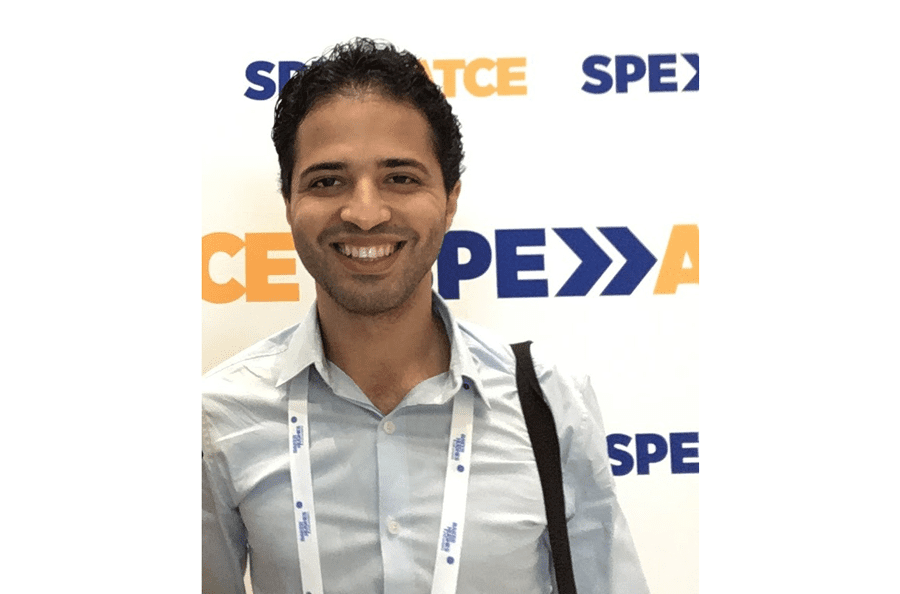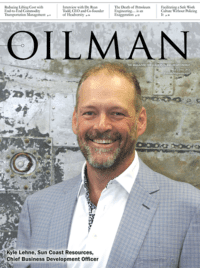Alan Alexeyev: Tell us a little bit about your current (or most recent) position and what you do, as well as how you found a job?
Ahmed Tarabily: I was a field engineer with Schlumberger, under Cameron’s Surface System Division, specializing in flowback and production well testing operations. I found the job through the 2018 SPE North America Student Symposium (NASS) Career Fair that was held at Louisiana State University (LSU).
AA: What inspired your career in the oil and gas industry? How did you decide on becoming a petroleum engineer?
AT: I found petroleum engineering the most interesting and most relevant to real-life applications. Also, the geopolitical exposure associated with the oil and gas industry really appealed to me, as you get to learn a lot of different things and skills that might not be applicable just to oil and gas. Every well is different, and I think there is no universal answer in the oil field with regard to problem-solving techniques, and the responsive actions taken toward various issues. Each well is like a monster that should be tamed differently. Hence, the unpredictability that comes with our industry is my favorite part of them all.
AA: You often meet workers in industry who do not have a formal college degree but, in your case, how valuable was it to get the university experience?
AT: Unfortunately, I didn’t find flowback and production testing technically challenging enough for a guy with my skills and expertise, knowing that I have a Master of Science in Petroleum Engineering, specialized in Smart Oilfield Technologies, from the University of Southern California (USC). I know the case might be quite different if Schlumberger placed me in a high-tier product line such as drilling, wireline, frac, etc. Yet, I had the privilege to learn and absorb all the knowledge possible from some of the most experienced field techs whom I consider great mentors and friends, not only professionally, but I could also relate to them at a personal level, aside of the fact that they don’t have a formal college education.
AA: How did you find yourself transitioning from the academia environment to the industry/corporate? What would you tell people who are about to make such a transition?
AT: The first three months were tough, and physically and mentally challenging for sure, knowing that I didn’t have much experience when it comes to basic labor skills such as how to swing a hammer properly, or how to lift heavy equipment properly. My advice to newbies is to be patient, resilient, believe in themselves, and know that once they catch their momentum, they will be unstoppable. There is always light at the end of the tunnel.
AA: Has the industry taken initiatives to smoothly transition young professionals into the oil sector? What, if anything, could be done better?
AT: I feel the industry should seriously allocate more time and effort toward developing young professionals’ soft and leadership skills, especially for those transitioning into an oil field experience. I have personally observed a lot of miscommunication issues while working in the oil field because of the cultural conflict between college graduates and field operators/techs. There should be a communication standard through which college graduates stop becoming [in]sensitive, lead by example, and also take their ego down and accept the fact that during their time in the field they need to be humble, listen and learn from those who are more experienced, but unfortunately didn’t have a real opportunity to get a degree or have any formal education. Conversely, non-college-based professionals need to stop believing that every college graduate is a spoiled brat, be patient with them and give them a solid chance to show their real value and worth.
AA: The oil and gas industry has tons of conferences and events. Have you attended any of them? If so, how useful do you find them and what’s your takeaway?
AT: Before taking that job with Schlumberger, I used to regularly attend SPE main events like ATCE and NASS but, unfortunately with my busy schedule, it became a lot harder. I had a 21/7 schedule, working almost 15-16 hours on a daily basis. Then, I got laid off back in April due to the pandemic and operations slowing down everywhere around in the nation, so lots of events got canceled and it just became harder for everybody to attend any events that will eventually help with their professional and self-development. Hopefully, the current situation and the industry’s situation will not last much longer.
AA: What advice do you give to current college students who have an interest in the oil and gas industry? Should they pursue the career during these constant downturns?
AT: To be extremely honest, I don’t think this is the right time to pursue a career in oil and gas. It might take years if current conditions remain the same, or oil prices start gradually going up, unless a significant political event comes into play at a global level. That would be a game changer. To those about to go to college and planning to pursue a petroleum engineering degree, I advise them to make up their mind unless they are specifically passionate about reservoir modeling and simulation. But in that case, they have to keep in mind that reservoir engineering positions are very limited in numbers and highly competitive, leading to a highly imbalanced supply and demand. Other than that, I highly recommend approaching another engineering major, preferably mechanical engineering, which will help [them] gain a better diversified skill set and have more options to choose from after graduation as they will be considered eligible candidates for multiple industries, including oil and gas.
AA: What main technical skills do you think will be needed for the industry in the near term based on your experience so far?
AT: I think it is really important for fresh graduates to understand at least the basic differences between upstream, midstream and downstream operations. Since most of our petroleum engineering graduates are mainly interested in the upstream side of business, it is crucial to develop sufficient knowledge that helps them comprehend the whole upstream gamut starting from exploration, moving to drilling, then unconventional completions and ending with production. Comprehending the various technical operations associated with each process definitely will enable them to master their problem-solving skills. Economic modeling, programming languages, probability and statistics, fluid mechanics and hydraulics are always a plus. With the digital wave the oil and gas industry is currently riding, it became crucial to stay up to date with fast-evolving and trending technologies. Therefore, understanding IIoT, AI, VR, deep learning, cyber security, edge computing applications, etc. will give any candidate a major advantage over others.
AA: What would you like to learn in the near future from experienced people who are in their mid-to-late careers?
AT: Best practices to avoid getting laid off during a downturn, how to smoothly grow [my]self into an undisputed corporate leader and how they manage to have a healthy life-work balance considering how intense and busy our industry is.
Alan is a graduate from the University of North Dakota with a Master's degree in Petroleum Engineering. He previously earned his BA in Mathematics from the University of Houston and a BS in Petroleum Engineering from the University of Wyoming. Alan is an active SPE member and has presented at petroleum conferences and exhibitions.





